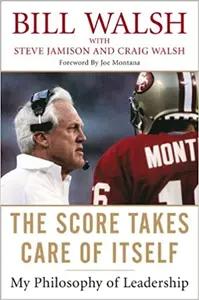The End of Power: From Boardrooms to Battlefields and Churches to States, Why Being In Charge Isn't What It Used to Be
By Moises Naim
Category
PoliticsRecommended by
"The End of Power" by Moises Naim is a thought-provoking examination of how power is shifting in today's interconnected world. Naim argues that traditional sources of power, such as governments, militaries, and large corporations, are losing their effectiveness and authority.
He identifies several key factors contributing to this decline, including the rise of technology, the empowerment of individuals, and the emergence of new players in the global stage. These forces have not only disrupted the status quo but also created opportunities for new power dynamics to emerge.
Naim provides examples from various fields, including politics, business, and religion, to illustrate his points. He highlights how these shifts in power have made it harder for traditional institutions to maintain control and influence, while also enabling smaller actors and grassroots movements to challenge the established order.
The book discusses the implications of this changing power landscape, including the potential for increased volatility, both domestically and internationally. Naim argues that this decline in concentrated power can be both beneficial, as it allows for more innovation and diversity, but also risky, as it may lead to unpredictability and instability.
Naim concludes the book by discussing the strategies that individuals and organizations can adopt in order to navigate this new era of power. He emphasizes the importance of adaptability, collaboration, and a willingness to relinquish outdated models of authority.
"The End of Power" offers an insightful analysis of the shifting power dynamics in our modern world and raises important questions about the future of governance and influence. It is a must-read for anyone interested in understanding the evolving nature of power and its impact on society.
He identifies several key factors contributing to this decline, including the rise of technology, the empowerment of individuals, and the emergence of new players in the global stage. These forces have not only disrupted the status quo but also created opportunities for new power dynamics to emerge.
Naim provides examples from various fields, including politics, business, and religion, to illustrate his points. He highlights how these shifts in power have made it harder for traditional institutions to maintain control and influence, while also enabling smaller actors and grassroots movements to challenge the established order.
The book discusses the implications of this changing power landscape, including the potential for increased volatility, both domestically and internationally. Naim argues that this decline in concentrated power can be both beneficial, as it allows for more innovation and diversity, but also risky, as it may lead to unpredictability and instability.
Naim concludes the book by discussing the strategies that individuals and organizations can adopt in order to navigate this new era of power. He emphasizes the importance of adaptability, collaboration, and a willingness to relinquish outdated models of authority.
"The End of Power" offers an insightful analysis of the shifting power dynamics in our modern world and raises important questions about the future of governance and influence. It is a must-read for anyone interested in understanding the evolving nature of power and its impact on society.
Share This Book 📚
More Books in Politics

Permanent Record
Edward Snowden

The End of Power
Moises Naim

Expert Political Judgement
Philip E. Tetlock

More Human
Steve Hilton

Taxes Have Consequences
Art Laffer

Team of Rivals
Doris Kearns Goodwin

The Fourth Revolution
John Micklethwait

A Conflict of Visions
Thomas Sowell

A Fighting Chance
Elizabeth Warren

A Higher Loyalty
James Comey

A Practical Guide for Policy Analysis
Eugene S. Bardach

A Very Expensive Poison
Luke Harding

Accidental Presidents
Jared Cohen

All Out War
Tim Shipman

American Crusade
Pete Hegseth

Anti Americanism
Jean Francois Revel

BLITZ
David Horowitz

Battlegrounds
H.R. McMaster

Blackout
Candace Owens

Chaos
Tom O'Neill

Chasing Hillary
Amy Chozick

Civilian Warriors
Erik Prince

Dark Towers
David Enrich

Days of Rage
Bryan Burrough

Dear Leader
Jang Jin-Sung

Defend The Border and Save Lives
Tom Homan

Defender In Chief
John Yoo

Democracy
Hans-Hermann Hoppe

Devil's Bargain
Joshua Green

Devouring Freedom
W. James Antle III
Popular Books Recommended by Great Minds 📚

The Ascent of Money
Niall Ferguson

Billion Dollar Whale
Tom Wright

Who We Are and How We Got Here
David Reich

Masters of Doom
David Kushner

Scale
Geoffrey West

The Courage To Be Disliked
Ichiro Kishimi

Siddhartha
Hermann Hesse

The Ride of a Lifetime
Bob Iger

Mindset
Carol Dweck

Meditations
Marcus Aurelius

Titan
Ron Chernow

The Outsiders
William Thorndike

Thinking, Fast and Slow
Daniel Kahneman

Economics in One Lesson
Henry Hazlitt

The Fountainhead
Ayn Rand

Lying
Sam Harris

Principles
Ray Dalio

High Growth Handbook
Elad Gil

Give and Take
Adam Grant

The Power of Habit
Charles Duhigg

The Score Takes Care of Itself
Bill Walsh

Can't Hurt Me
David Goggins

Influence
Robert Cialdini

The Lean Startup
Eric Reis

Becoming Steve Jobs
Brent Schlender

Principles for Dealing With The Changing World Order
Ray Dalio

High Output Management
Andrew Grove

The Innovators Dilemma
Clayton Christensen

Measure What Matters
John Doerr

The Prince
Nicolo Machiavelli